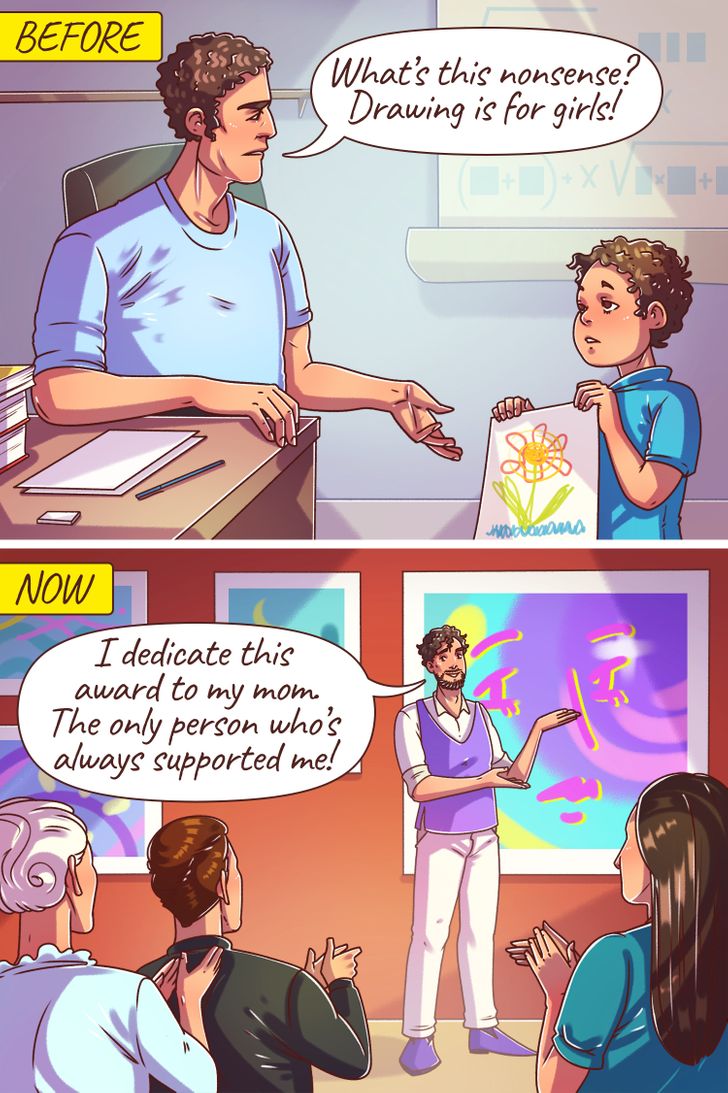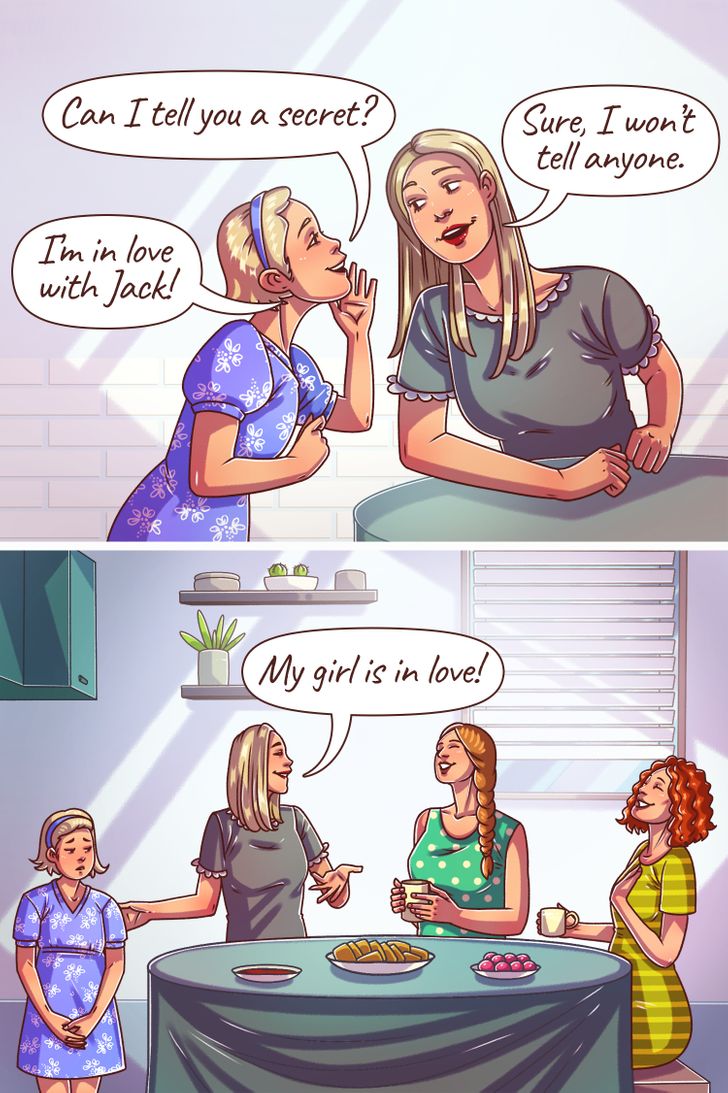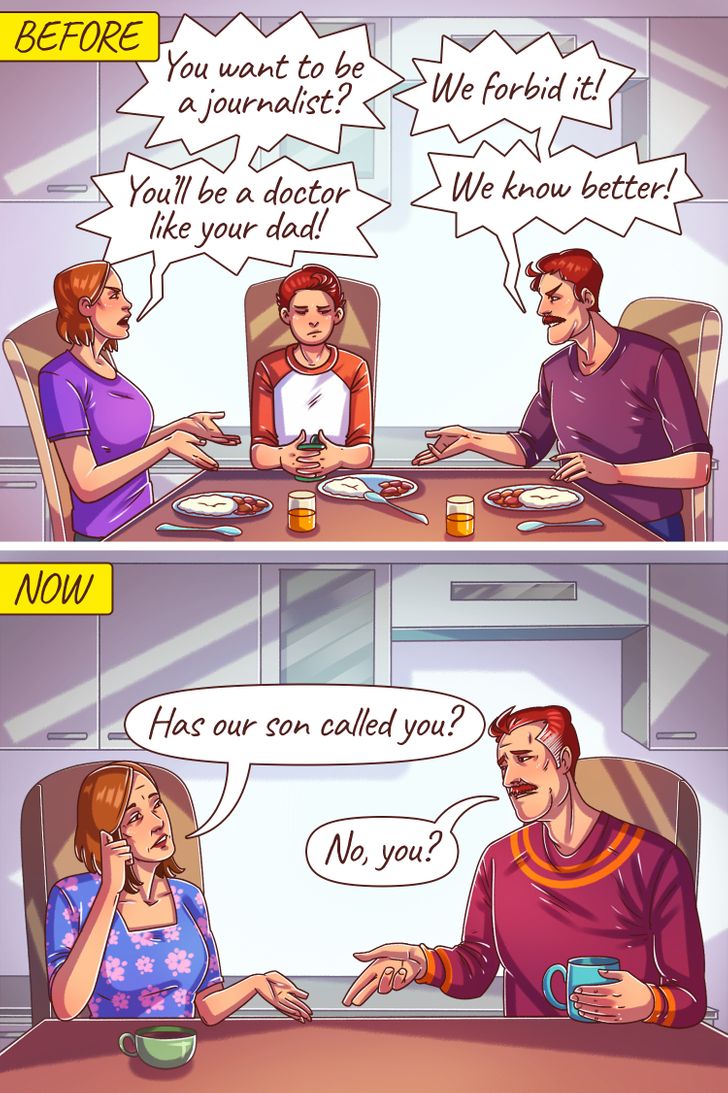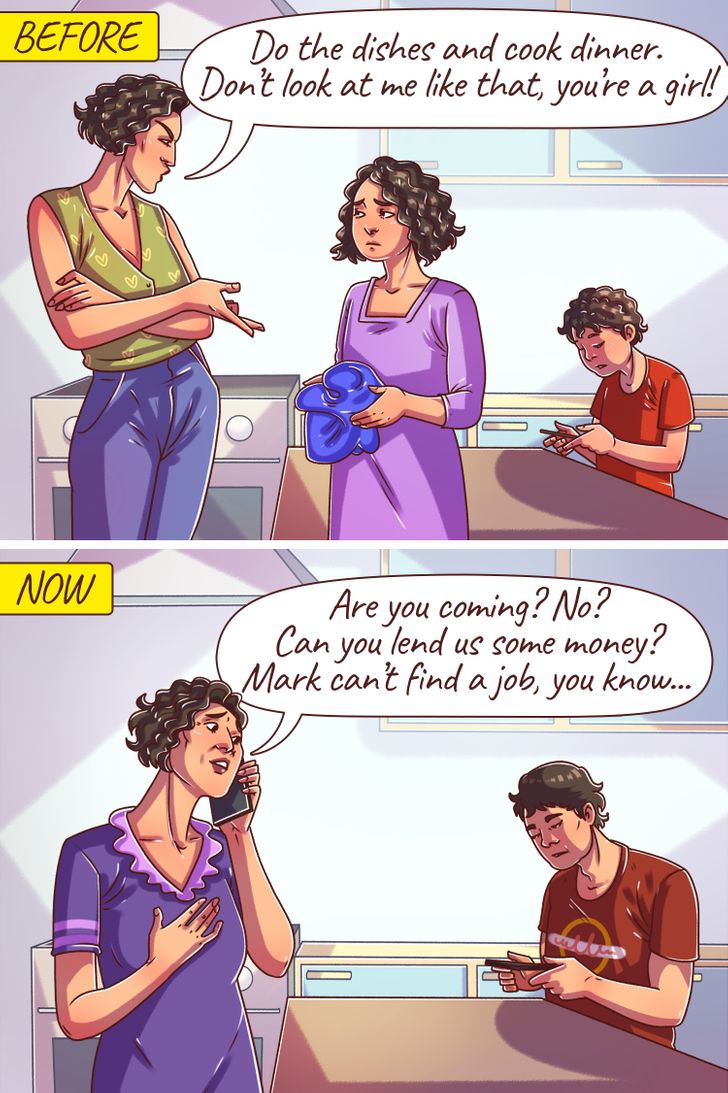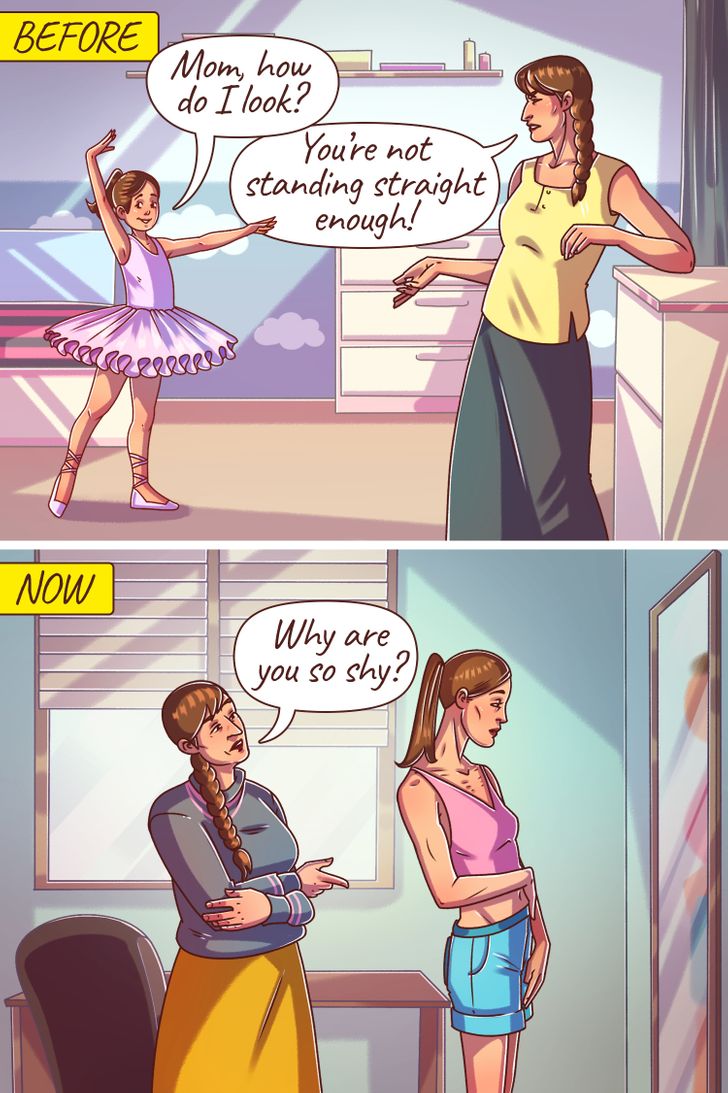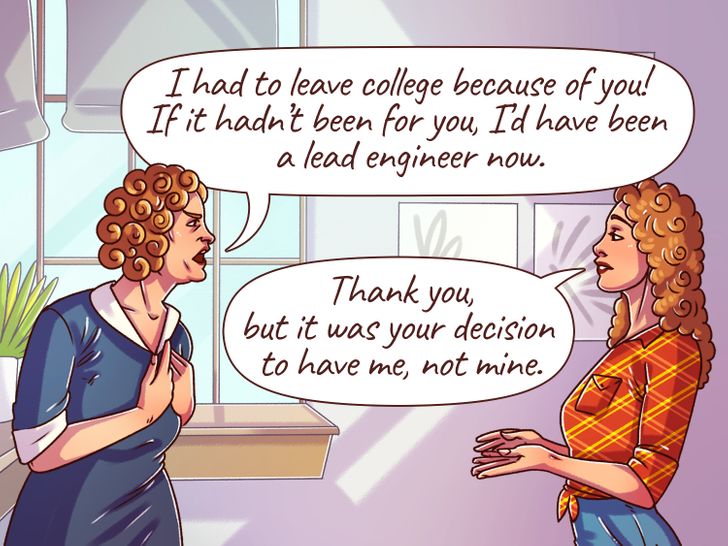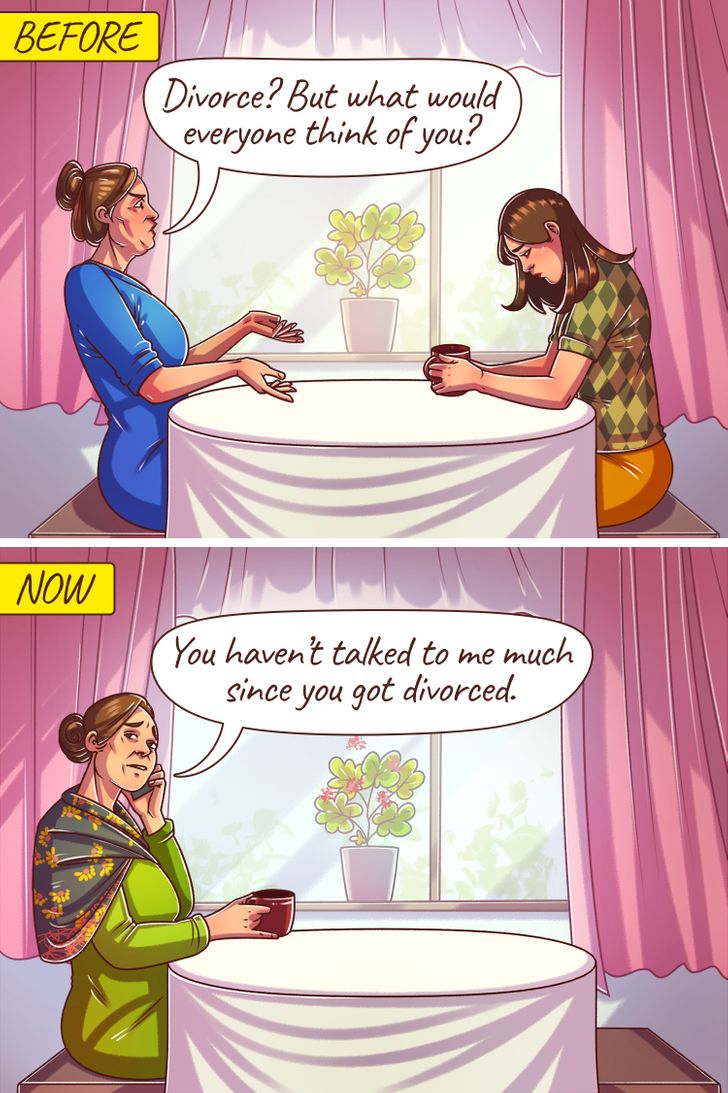Always…
the blaming towards their children (-for minors details-) when doing some things
and THEN criticise or at least wonder why they stopped doing so. 🙄
15 Reasons Kids Might Not Feel Close to Their Parents and Why They Shouldn’t Blame Themselves
Even though we know that a lot of problems come from our childhood, we still rarely talk about the relationships between parents and children. We say things like, “Well, she’s my mom,” “They’ve done everything for me — I should be thankful.” We don’t often talk about negative feelings toward our parents. However, the things they sometimes do may make some people feel really anxious, even when they grow up.
We at Bright Side agree with the opinions of psychologists that people don’t have to feel close to their relatives, even if it’s their mom and dad. Today, we have a compilation of 15 glaring examples of what toxic behavior in a family may lead to.
1.
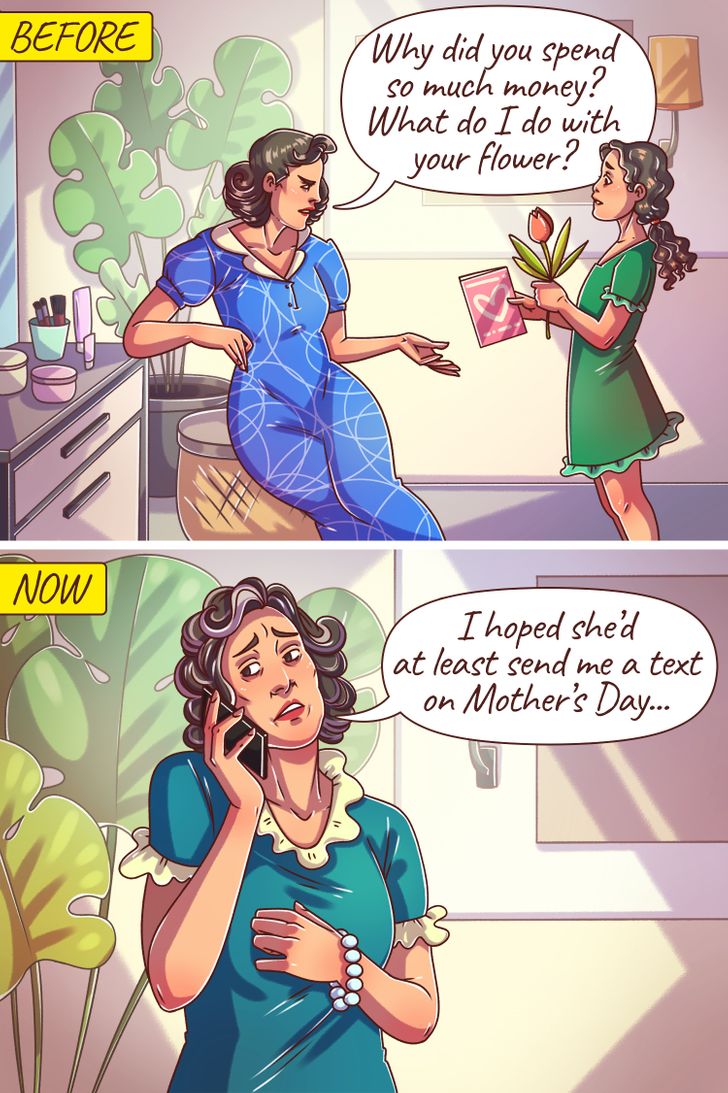
Some parents start criticizing their children every time they feel angry, disappointed, or simply tired. This helps them express their negative emotions and hide their own vulnerabilities. In any words and actions from their children, these mothers and fathers will always find something offensive or negative. Over the years, this behavior from parents doesn’t disappear and can actually get worse, and children grow up and don’t want to do anything good for their relatives.
2.
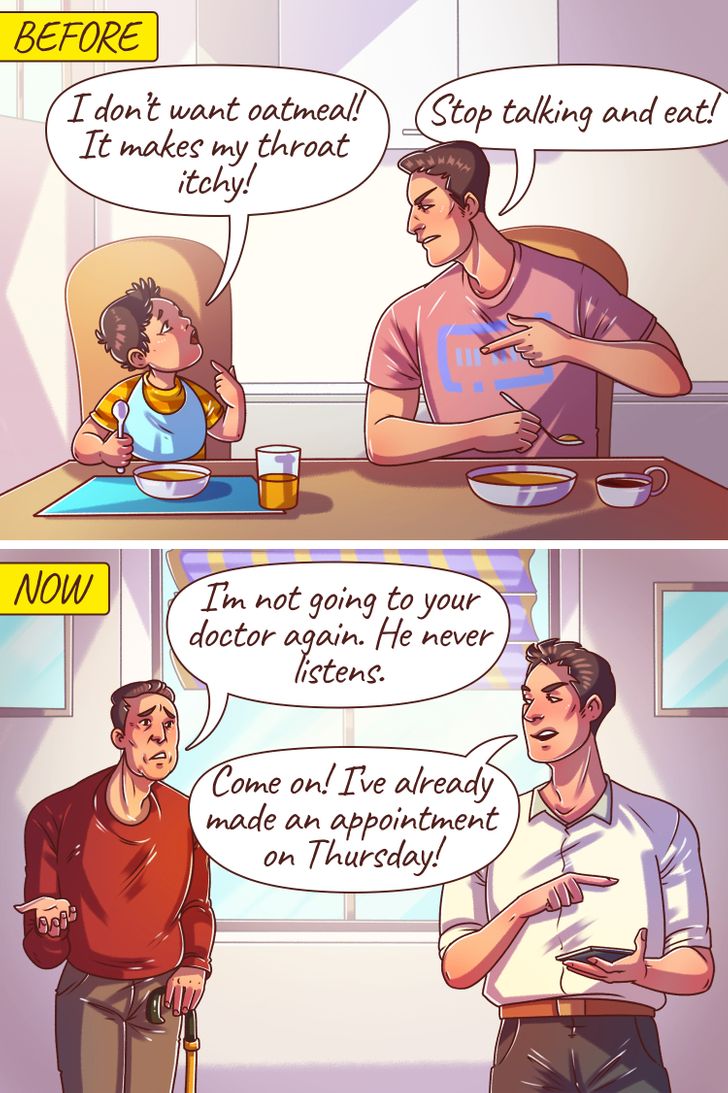
Honestly … as they start to grow older, and their tastes in food is "sufficiently developed": please don't force your child eating things they don't like. Make them instead eat things they appreciate yet still good for their health! 😋🌱
There are parents that think that if their children are well-fed, and have good clothes, they are great parents. Unavailable and cold, they might be in their children’s lives physically, but not emotionally. Growing up, children feel that they have a duty to their parents: to help them financially, to find a doctor, etc. But these parents shouldn’t expect warmth and attention from their kids.
3.
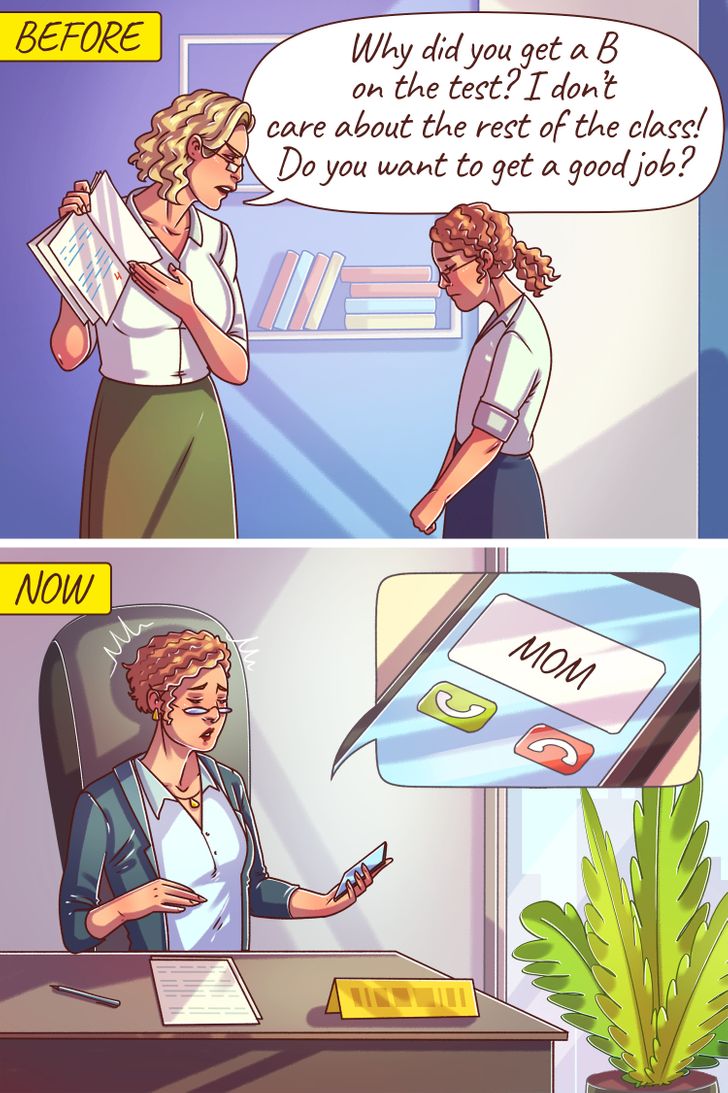
Narcissistic parents play a bigger role in a child’s life. They are very attentive to how their children study, which classes they take, and what they are successful at. These moms and dads feed their own egos with their children’s successes. But at the same time, they fail to see a unique and autonomous personality. Any mistake, any bad grade, or any failure at an athletic competition are the reason for an argument. Children feel that they are under pressure and think that they are not good enough. When these kids grow up, they try to put as much distance between them and their relatives in order to not repeat being under this amount of pressure.
4.
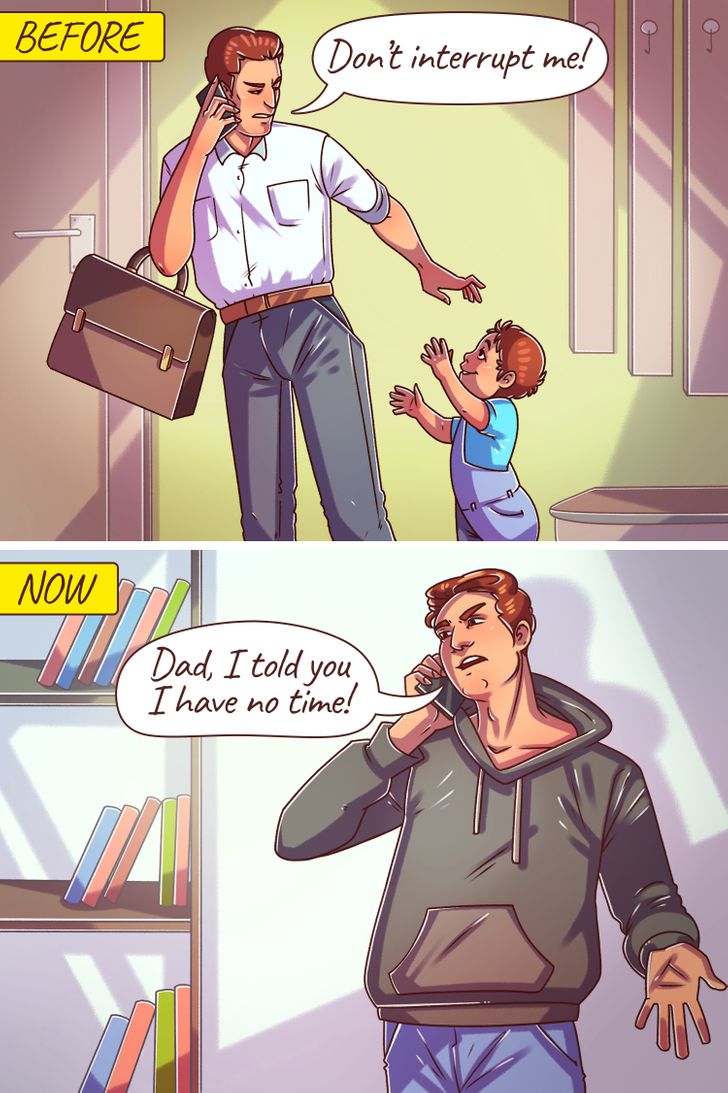
It's important to not ignore your kid attempts into making a connection with you…or learning new things. 😔
Emotionally neglectful mothers and fathers don’t reject their children completely, but they don’t give them a lot of attention. When these parents become older, they realize that for some reason, their children don’t show them enough love, care, and respect. But there’s nothing surprising about that.
5.
6.
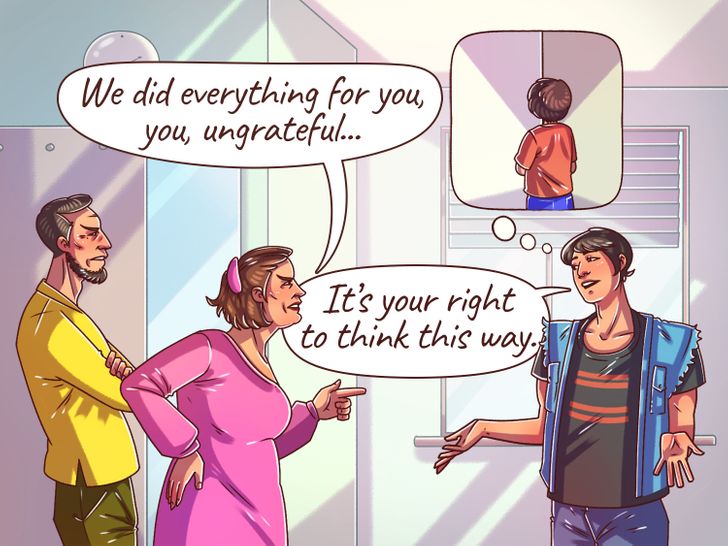
Ah- so it is really considered as manipulation from them?
I didn't knew….
Older parents often resort to a popular manipulation, “We did everything for you and you are so ungrateful now!” They know that they have a lot of power over their children and they try to keep it, even after their kids start living separately. Moms and dads can press, blackmail, and even make their children choose between them and other loved ones. In these situations, any choice feels like a betrayal. The wisest decision would be to not fall prey to these manipulations but to learn to fight for your own rights, remaining grateful for everything your parents have done for you.
7.

There’s nothing wrong with moms and dads being ambitious about their children. But it’s bad when this becomes an obsession. All the constant conversations about getting married and having children don’t make relationships between relatives any closer or better. The parents that do this shouldn’t be very surprised when their children stop communicating with them.
8.
Psychological support from parents is just as important for children as breastmilk is for babies. A psychological trauma inflicted by a relative won’t go away on its own. Some people give up, others become shy and scared of serious relationships. Others want to prove something to their relatives and achieve great successes. But still, these people feel abandoned.
9.
Trusting a secret to an adult is a big step for a child. This is both a test of authority and a way to support friendship. But if a parent laughs or gets angry instead of keeping the secret, and then also tells everyone about it, the trust in this family will be lost forever. Very often it makes children not want to tell their parents about anything at all.
- I stopped trusting my mother at the age of 7 when I told her I liked a boy in my class and by the next morning, all of my relatives knew about it... I know it’s not that serious, but this story put an end to my trust. Now, my mom is always complaining that I’m very secretive and that I haven’t told her anything in 21 years! And when I tell her the reason why I don’t share anything with her, she doesn’t believe me! © nfh354410 / Pikabu
10.
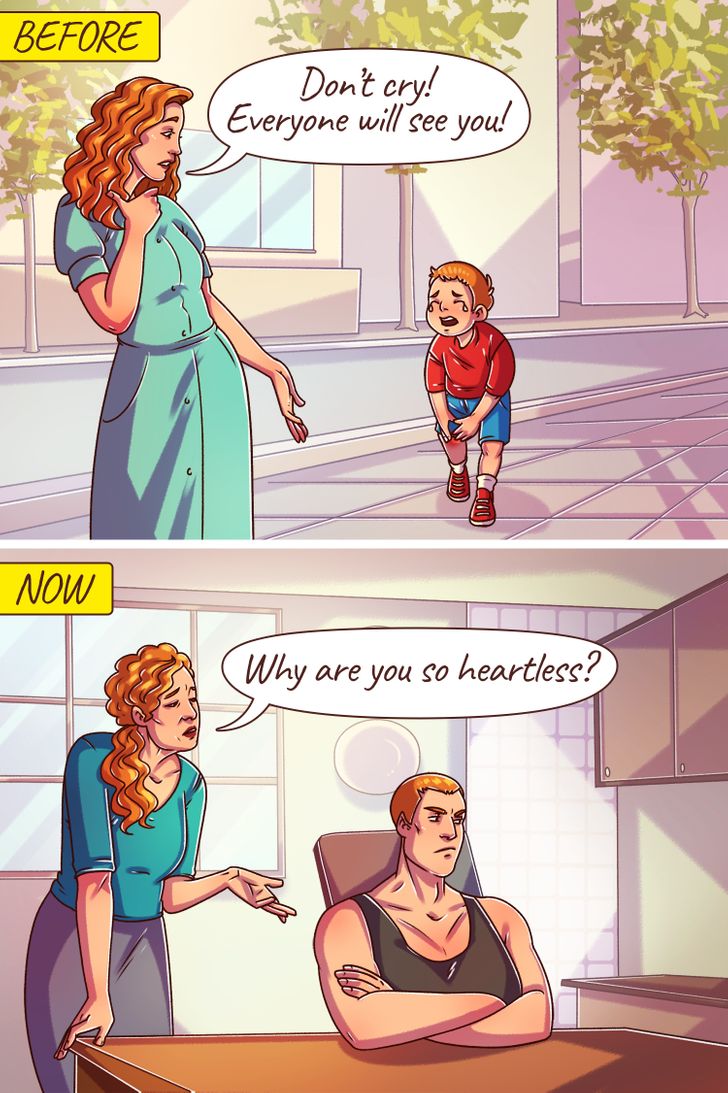
I know the following situation…
Except "if only" the reproach to the child of asking them ‹why they're so 'heartless'› was actually said in a calm and genuine way.
(*😮💨* At least when it comes to me and some of my others siblings having the same problem but "more accentuated"; they often reprimanded us more than truly seemed to wanna know WHY we were actually acting as so.)
“Why are you crying like a baby?” “Look! Everyone is looking and laughing at you!” “You’re not beautiful when you’re crying, stop it now!” — many parents are convinced that shaming their children for crying is the only way to stop them from crying. But the only thing this reaction can lead to is making children reserved and shy. Crying when you are hurt is normal. Kids need to be able to deal with unpleasant emotions.
11.
Parents who are obsessed with power think that they have a right to know what profession their children should choose, who they should date and marry, and what job they should choose. And they don’t care that their kids are not babies anymore, or that they are adults that can make their own decisions. The control is irrational. And the parents’ argument is, “Because I said so.” The children that remain under their parents’ control have a very hard time later. They not only have this anger in their souls, but they also learn to adapt to other people’s wishes, believing that someone else’s needs are more important than their own.
12.
This is a very frequent situation in a family where one of the children is loved more. For example, the older child is supposed to perform the duties of a parent, and he or she is told off for every little thing, whereas the younger child gets away with everything. And the older child may be required to set an example for the younger child. If parents don’t notice this problem, it makes the conflict between the siblings very serious.
- I remember I was 9 in 1996. I’m the oldest child. Someone on TV said that younger children are loved more. My dad says to my mom, “Well, it’s true, isn’t it?! I wonder why this is...” My mom agreed. Wow, that hurt. © NAZAROVV74 / Pikabu
13.
Some parents think that it’s harmful to praise their children. So, they are very harsh with their kids. Parents set standards that children are not able to reach and then they are surprised when their kids grow up to be very shy.
14.
Manipulative parents are incredibly good at making children feel guilty for their unfulfilled goals. They often say something like, “If it hadn’t been for you, my life would have been very different.” These words are very painful to hear. To be able to fight the feeling of guilt, you need to draw the line and not let yourself be manipulated. It’s not the child’s decision to be born.
15.
“What will people say?” “Everyone knows me in this town. How am I supposed to look at them?” — this is what really selfish people say, who care more about approval than about how their kids feel. They want to be so perfect that they don’t have time for anything else. Do you think people want to carry on a good relationship with parents that don’t accept them? The answer is obvious.
Have you ever had any situations that undermined your relationship with your parents? What things would you never say to your children?
Comments
No exaggeration,,, I've been through every single one of these. Although I'm 33 now, I've a successful career, and about to hold a PHD,,, I still remember and still have the same issues with my mom, and still doubt myself too.
My mum is kinda like this she always blame me ,ask me why don't I get good grades in math ?And she tells me I am chubby and overweight .She does always tell me I should be so grateful to her .But she doesn't consider my feelings.
I'll share my experience here:
At 6th grade, I had good grade in math and my parents were happy. When they didn't supervise me, I began to play a lot, wonder around curiously, and not studying or learning. That's when I realize that they thought I was independent because I did well in school when I had more room to grow
Related Reads
12 Outdated Financial Habits We’d Better Ditch So We Don’t Have to Live Hand to Mouth

11 Narcissistic Traits of Mothers Who Don’t Even Know They’re Ruining Their Kids’ Lives

9 Outdated and Dangerous Ideas We’re Still Trying to Beat Into Our Children’s Heads
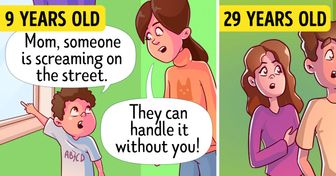
21 People Share the Eerie Stories That Made Them Stop Cold in Confusion
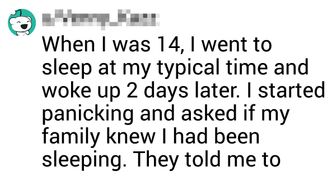
15 Memorable Red Carpet Dresses That Went Down in History at the Oscars

People Reveal the Most Disrespectful Things a Guest Has Ever Done in Their Home

22 Women Who Blindly Trusted Their Stylist and Have No Regrets

10 Times Actors Shared the Screen With Their Own Kids and We Even Didn’t Notice It

12 Detective Riddles That Will Put Your Brain to Work Mode

12 Creepy "House Rules" People Encountered When Visiting Others

People Shared 15 Awkward Moments That Made Their Stomach Drop

16 People Who Know What the Drama of the Neighborhood Is All About


